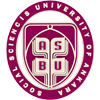Social Sciences University of Ankara
School of Foreign Languages
Professional Development Unit
Mission
The Professional Development Unit (PDU) strives to empower language instructors by offering lifelong learning opportunities and enhancing language teaching practices through in-house training sessions, workshops, classroom observations, and one-page research summaries on second language education and digital technologies. Our primary focus is on providing innovative and impactful professional development opportunities with technology (digital tools/GenAI) that can lead to improvements in both instructors’ teaching practices and students’ learning outcomes.
Vision
To become the premier centre of excellence in language education and TESOL professional development, recognised for empowering language educators with innovative teaching strategies, cutting-edge digital tools, and research-based insights that can significantly enhance language teaching and learning practices at the SSUA, School of Foreign Languages, and beyond.
Objectives
The PDU is dedicated to achieving the following objectives:
- Conduct ongoing professional needs assessments to meet our instructors’ specific PD needs and wants.
- Develop and implement in-service training programs to address the identified needs/wants.
- Stay updated with the latest trends in second language education and digital technology.
- Provide instructors with concise research summaries on these two fields.
- Foster improvements in teaching quality and professional growth through regular constructive feedback cycles.
ASBU SFL Effective Language Teaching Criteria
Find attached.
Current Activities
Our program provides comprehensive support through workshop sessions and teacher mentoring. Experienced and less experienced teachers engage in discussions about language teaching practices and challenges during their available time. The following professional development activities are the lifeblood of the PDU:
1. Monday Morning Messages
The purpose of the Monday Morning Messages is to share with instructors recent updates regarding second language education/acquisition, online teaching resources and (virtual) workshop announcements.
2. One-Page Research Summary Initiative
This initiative seeks to offer language instructors a concise yet insightful overview of the latest trends in second language education and acquisition, as well as digital technology. It presents evidence-based practices and innovative approaches to second language teaching and learning, as well as digital technologies.
3. Workshops, In-House Training and Classroom Observations (Peer & Trainer Observations)
These continuous opportunities aim to foster teacher professional growth and, ultimately, promote excellence in language teaching and learning.
4. Teaching Evaluation
The performance evaluation process for our academic teaching staff is conducted at the end of each teaching period to enhance language instructional quality and support professional growth.
5. Faculty Orientation Programme
The new faculty orientation program equips new teachers with the essential knowledge and skills to excel in their roles. During the session, instructors are introduced to the School mission, vision, objectives, and the Instructor Booklet. Additionally, the session highlights professional development and support opportunities to enhance teaching practices.
Email: pdu@asbu.edu.tr
Attached Files:
3-ASBU-SFL-PDU-Effective Language Teaching Criteria
6-2024-PDU Flow chart Stake holders-Mohammad Musaab WAZZAN
7-Monday Morning Messages-Sample
8-Workshops-In-House Training Sessions
